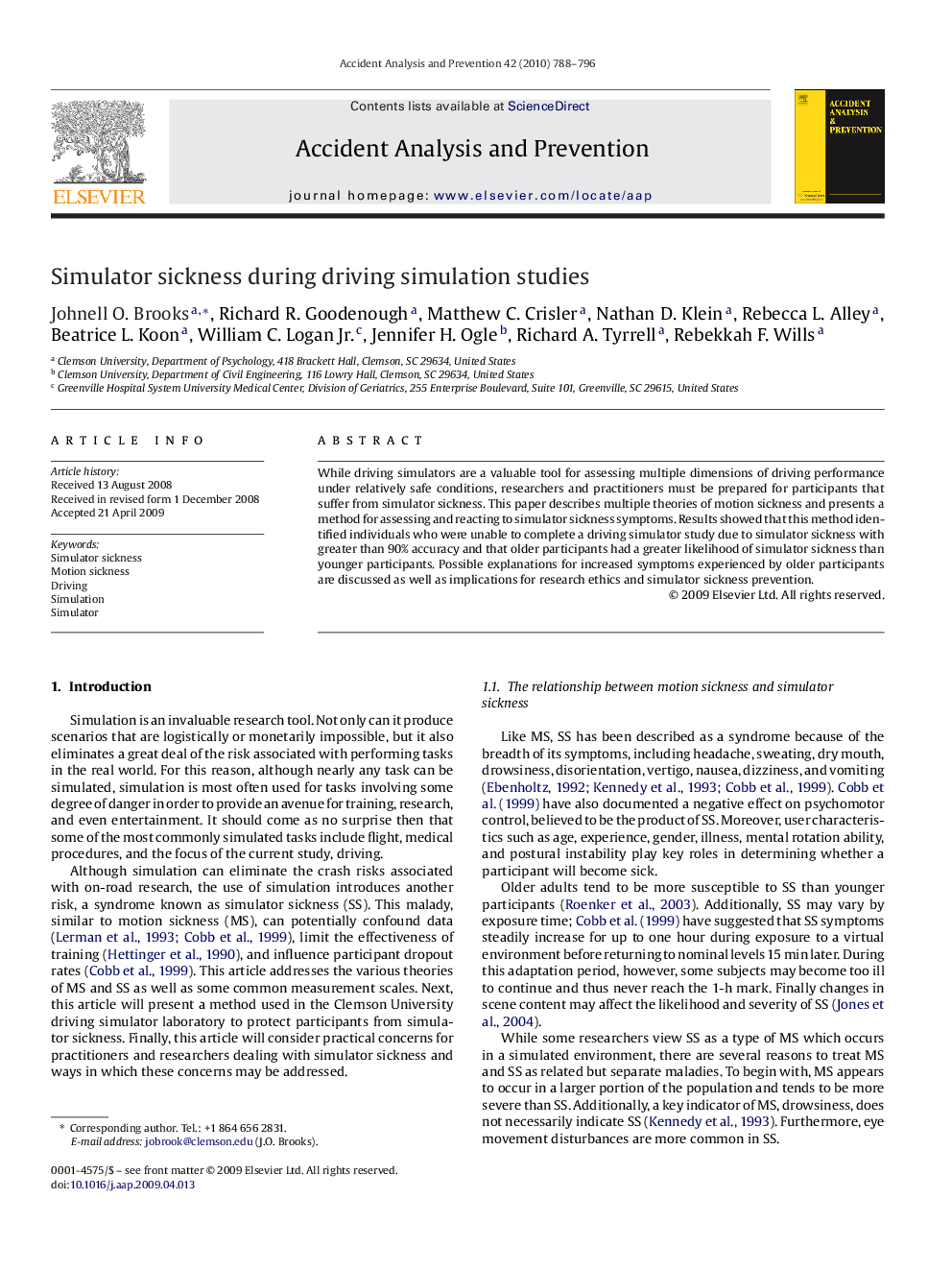| Article ID | Journal | Published Year | Pages | File Type |
|---|---|---|---|---|
| 573290 | Accident Analysis & Prevention | 2010 | 9 Pages |
While driving simulators are a valuable tool for assessing multiple dimensions of driving performance under relatively safe conditions, researchers and practitioners must be prepared for participants that suffer from simulator sickness. This paper describes multiple theories of motion sickness and presents a method for assessing and reacting to simulator sickness symptoms. Results showed that this method identified individuals who were unable to complete a driving simulator study due to simulator sickness with greater than 90% accuracy and that older participants had a greater likelihood of simulator sickness than younger participants. Possible explanations for increased symptoms experienced by older participants are discussed as well as implications for research ethics and simulator sickness prevention.
